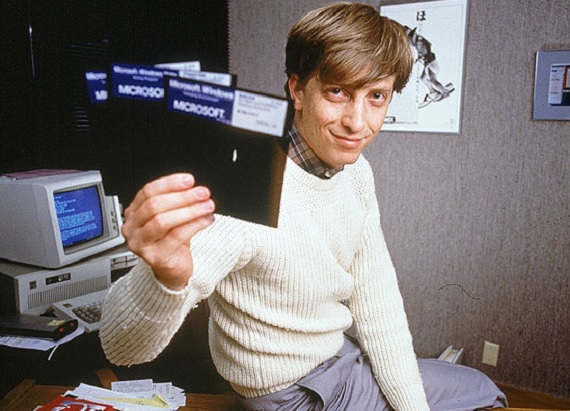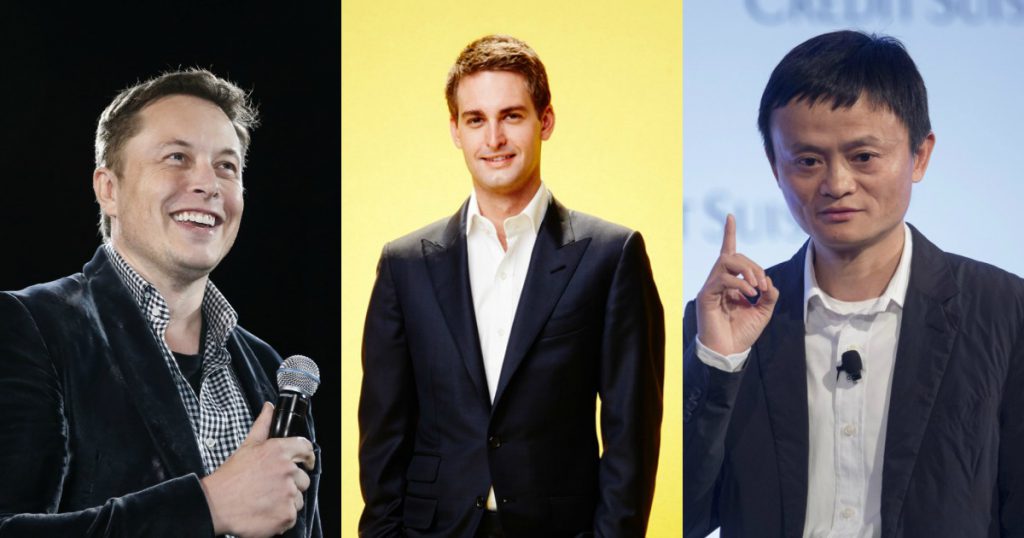Most billionaires aren’t born; they’re self-made.
More than two-thirds of 2016’s Forbes 400 list are self-made billionaires. That makes 266 who can say they built their fortunes from scratch.
End 2016, the co-founders of Stripe displaced Evan Spiegel (Snapchat) to become the world’s youngest self-made billionaires by Forbes. This was after the online payments company announced a new round of funding that valued the company at $9.2 billion.

What do these self-made billionaires have in common? In this article, we visit 5 traits they possess that set them apart.
1. They Didn’t Wait For Others To Teach Them
In 2011, Patrick and John Collison founded Stripe, whose backers include Elon Musk and Peter Thiel.
Their success is due in large to an obsession with technology and coding – the brothers taught themselves to code before the age of 10. “I went to the bookstore on a Saturday, I bought a book about programming, and I started programming,” Patrick tells The Financial Times.
Bill Gates developed his first software at 13 and by 16, he had already set up a company – Traf-O-Data – and was making money from computing.

At the age of 12, Jack Ma started learning English by himself. He cycled 40 minutes every morning to a hotel near his city to give tourists free guides in exchange for teaching him English.
2. Their Education Levels Didn’t Define Them
Facebook founder Mark Zuckerberg dropped out from Harvard University to develop the app, but it was hypothesised that he might not have created it if not for Harvard.
Stripe founders Patrick dropped out of MIT and John dropped out of Harvard to co-found their first start-up, Auctomatic, a marketplace management system for companies like eBay.
Evan Spiegel left Stanford to focus on Snapchat, a few credits short from completing his degree.
Of course, there are self-made billionaires who did not go to a top university such as Jack Ma and some who did not even attend university. Ma graduated with an MBA from Cheung Kong University while he was already building Alibaba.
Hong Kong billionaire Li Ka Shing dropped out of school at a young age to support his family and never received a university degree.

3. They Have Great Humility
Along with their talents, the Collison brothers’ trademark humility has earned them the confidence and enthusiasm of investors and clients.
Warren Buffet, chairman and CEO of Berkshire Hathaway, has a net worth of around $73.1 billion, but he still lives in his 50-year old home that he paid $31,500 for in Omaha, Nebraska.
He has donated more than $2.86 billion worth of Berkshire Hathaway stock to a handful of charities on Wednesday, with a great portion of it going to the Bill and Melinda Gates Foundation to be used for philanthropic purposes.
Facebook head honcho Mark Zuckerberg also leads a surprisingly low-key lifestyle.
He famously prefers the same gray T-shirt and hoodie to work every day. His wedding with Priscilla Chan was held in his backyard, and the pair was seen digging in at a McDonald’s on their Italian honeymoon.
Property magnate Lee Shau Kee is a well-known philanthropist who has donated over $400 million towards education over the years. Lee came from very humble beginnings where his family could only afford to eat fish or meat twice a month.
Despite his remarkable salary and impressive net worth, Lee Shau-kee remains a humble and modest person.

4. They Read – A LOT
Warren Buffett credits many of his great money decisions to his voracious reading habit. He reportedly spends as much as 80% of his day reading.
When they are not running the company, the Collison brothers are both avid readers (the two supposedly own over 600 books).
Elon Musk, CEO of Tesla and SpaceX, has been obsessed with reading since he was a kid. Musk described himself, in a Bloomberg interview, as a “bookwormy” kid. He was capable of reading as many as two books per day when growing up.
When asked how he learned how to build rockets, Musk gives a simple answer: “I read books.”

Li Ka Shing has always been a voracious reader and attributes much of his success to his ability to learn independently.
For instance, he completed Cheung Kong’s accounting books in the company’s first year himself with no accounting experience – he simply taught himself from text books.
5. They Did Not Let Countless Flops Stop Them
Despite Snapchat’s phenomenal success, it has not always been a bed of roses for Evan Spiegel. The first version, Picaboo, failed to get off the ground and was rebranded as Snapchat with a few more features.
After he started Alibaba, Jack Ma suffered multiple failures. It was not profitable in the first three years. In the beginning, they expanded too fast and almost imploded when the dot-com bubble burst.
At one point, they were even on the brink of bankruptcy.
In 2009, Airbnb was close to going bust. Like many startups, they had launched but barely anyone noticed.
To founder Brian Chesky’s dismay, he received 7 rejections from VCs until the company was finally accepted into Y Combinator.

The Bottom Line
Even if you don’t dream extreme wealth, these inspiring rags-to-riches examples show just how far determination, confidence, and perseverance can get you.
And it doesn’t even take a lot to start.
Featured Image Credit: Ecell, Adweek, SurFolks












